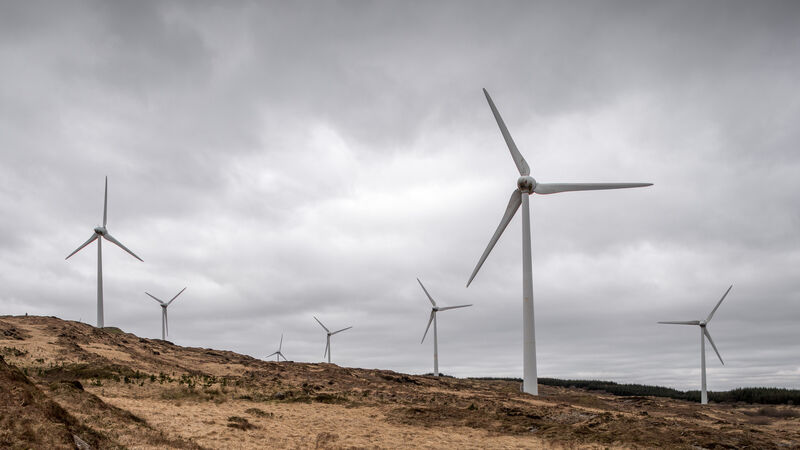Pádraig Hoare: Rampant consumerism, not data centres, at the heart of energy woes

Until renewable energy such as wind can take care of the heavy lifting towards the tail end of the decade, we are in for a bumpy ride when it comes to our grid. File picture: David Creedon / Anzenberger
It's the year 2021, and the Taoiseach is being asked in Dáil Éireann if he can guarantee the lights will not go off in Ireland this winter.
This is not a scenario from a bad made-for-TV movie with has-been or ne'er-were actors, but an actual query from Labour leader Alan Kelly on Wednesday.
CLIMATE & SUSTAINABILITY HUB
















